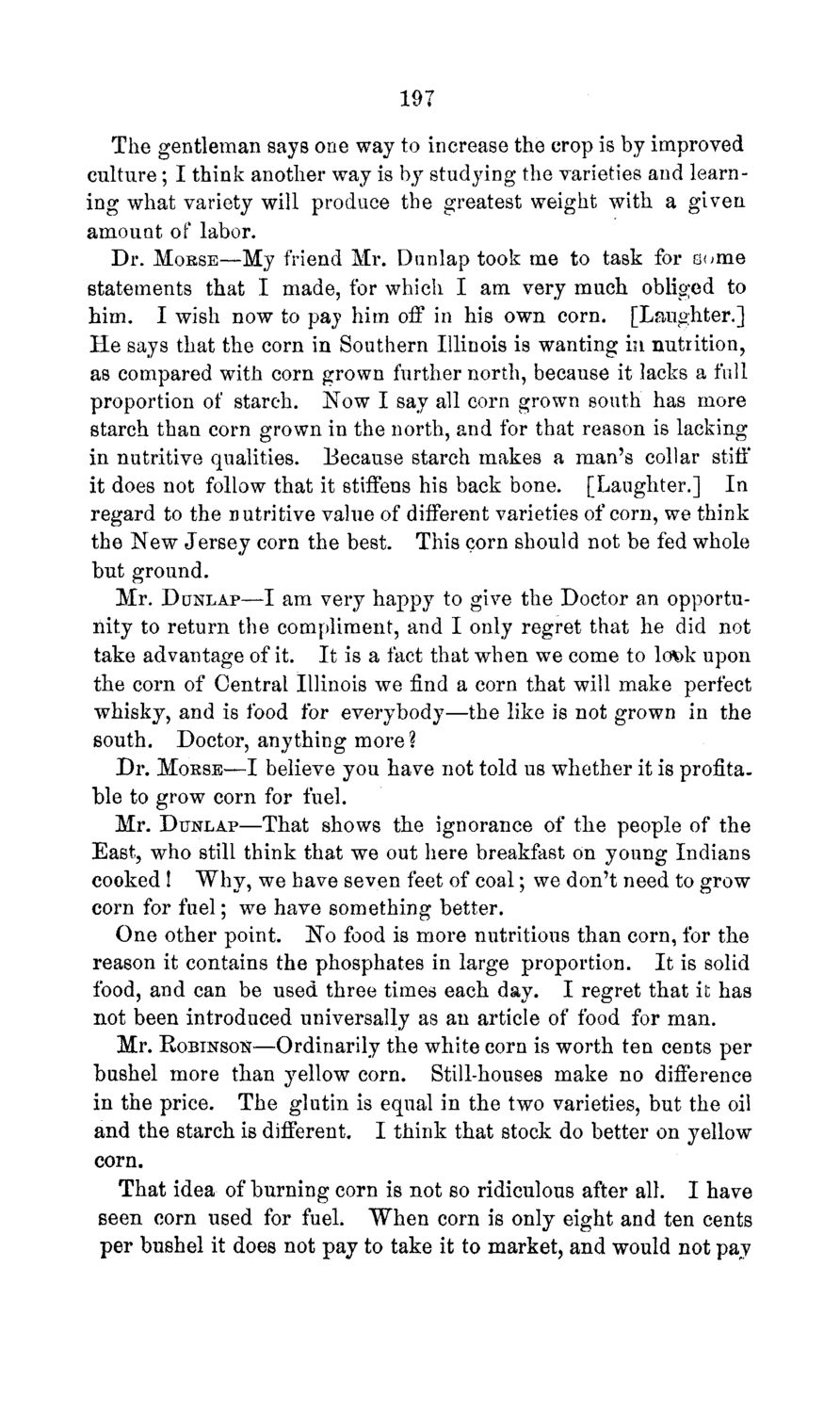| |
| |
Caption: Board of Trustees Minutes - 1869
This is a reduced-resolution page image for fast online browsing.

EXTRACTED TEXT FROM PAGE:
197 The gentleman says one way to increase the crop is by improved culture; I think another way is by studying the varieties and learning what variety will produce the greatest weight with a given amount of labor. Dr. MORSE—My friend Mr. Dunlap took me to task for some statements that I made, for which I am very much obliged to him. I wish now to pav him off in his own corn. [Laughter.] He says that the corn in Southern Illinois is wanting in nutrition, as compared with corn grown further north, because it lacks a full proportion of starch. Now I say all corn grown south has more starch than corn grown in the north, and for that reason is lacking in nutritive qualities. Because starch makes a man's collar stiff it does not follow that it stiffens his back bone. [Laughter.] In regard to the nutritive value of different varieties of corn, we think the New Jersey corn the best. This corn should not be fed whole but ground. Mr. DUNLAP—I am very happy to give the Doctor an opportunity to return the compliment, and I only regret that he did not take advantage of it. It is a fact that when we come to lo^k upon the corn of Central Illinois we find a corn that will make perfect whisky, and is food for everybody—the like is not grown in the south. Doctor, anything more? Dr. MORSE—I believe you have not told us whether it is profitable to grow corn for fuel. Mr. DUNLAP—That shows the ignorance of the people of the East, who still think that we out here breakfast on young Indians cooked ! Why, we have seven feet of coal; we don't need to grow corn for fuel; we have something better. One other point. No food is more nutritious than corn, for the reason it contains the phosphates in large proportion. It is solid food, and can be used three times each day. I regret that it has not been introduced universally as an article of food for man. Mr. ROBINSON—Ordinarily the white corn is worth ten cents per bushel more than yellow corn. Still-houses make no difference in the price. The glutin is equal in the two varieties, but the oil and the starch is different. I think that stock do better on yellow corn. That idea of burning corn is not so ridiculous after all. I have seen corn used for fuel. When corn is only eight and ten cents per bushel it does not pay to take it to market, and would not pay
| |